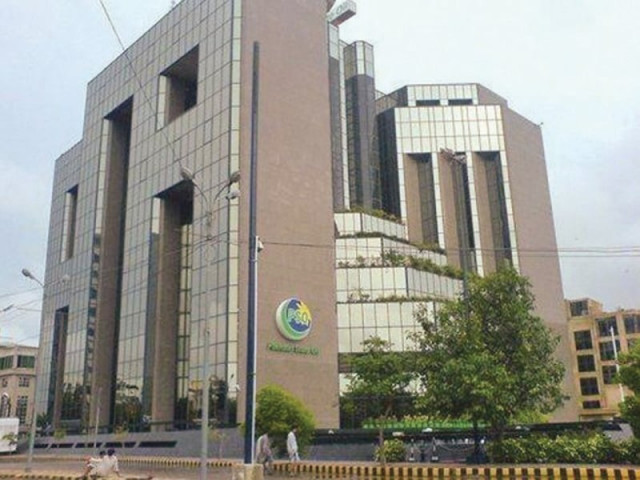Financial curse: The inner tactics of PSO
Defaults, pending receivables, threats overshadow working of state oil company.

Every few days, employees managing the finances of Pakistan State Oil (PSO) meet in a secret huddle and there, they conspire — which bank should be last to get loan repayment? Who has the capacity to exert pressure on Islamabad? How about a threat to cut fuel supply to Pakistan International Airlines? Will this work for PSO to receive withheld funds?
For a company with sales revenue of Rs1.4 trillion, equivalent to 33% of the government’s budget outlay, PSO is a behemoth with an empty stomach. Responsible for 60% of country’s oil need, it often doesn’t have cash to pay off suppliers.
“We have already defaulted to a couple of suppliers and banks in the last few months. The fear of the worse keeps looming over us,” said a senior official.
“Often we have to use the tactic of holding payment to a foreign bank, which in turn compels the government to release funds. This is not good for our reputation but what else can we do?”

PSO’s receivables, mostly due from power producers, exceed Rs220 billion. Three governments have not been able to solve the problem, which arises from consumers not paying their power bills, exacerbated by electricity theft, excess use of furnace oil, subsidies and ends with a black hole in the national exchequer.
Amid all this, PSO has a lifeline in shape of a long-term supply contract with the Kuwait Petroleum Corporation (KPC), which sells diesel to Pakistan on very lucrative credit terms.
PSO buys around 2.5 million tons, or 70% of its diesel sales, from KPC. It doesn’t even use letter of credits for it. Under a long-term agreement, import payments are made 60 days after the shipments are booked.
“For the October-December 2014 quarter, they have even extended that duration to 90 days. So, basically, we get a loan of millions of dollars for two to three months,” he said.
Now the Ministry of Petroleum has asked PSO to limit imports from KPC between 2 million and 2.4 million tons. The move comes following protracted efforts of Byco, which has the largest refining capacity of 155,000 barrels per day in Pakistan.
Byco believes that local refineries should not be ignored. “What is the point in importing so much when local refineries have the capacity to meet the demand?” Byco Chairman Amir Abbassciy said in an interview last week.
The matter has further soured an already bitter relationship between the two. Byco supplies petroleum products on a credit of 21 days but PSO doesn’t want to meet this condition.
Bank guarantee or any other financial instrument in favour of Byco is also out of the question, considering PSO’s already leveraged position. Again there is an impasse.
A PSO spokesperson said that no formal agreement had been signed with Byco.
The location of the refinery in Hub is an issue too. Diesel produced by the refinery has to be transported 100 kilometres to Port Qasim from where it can be pumped to Punjab via a cross-country pipeline. In Karachi, dozens of tankers will crisscross rickety roads. It’s a logistical nightmare. And who will bear the cost?
To an outsider, every act of PSO appears shady. Everyday business decisions are taken with a tinge of conspiracy. But beneath few layers of whatever is mentioned in news and industry grapevine, there is basic human nature at work.
Years of out-of-turn promotions, FIA inquiries, interference of ministers and secretaries, suspensions and political pressures have made a certain cadre in PSO hardened. They have learnt to fight back outsiders who try to squeeze the company and its employees.
“We have nothing against any company including Byco. This is not about ego or anything. But Mr Abbassciy must realise that coming from the top is not how business is done. Byco has to deal with PSO. They should come and settle the matter once and for all,” said senior PSO official.
This relates to an arrangement Byco has planned for quite some time. If it could charter a tanker, which can transport diesel from refinery’s jetty in Hub to Port Qasim, the problem will be solved.
People in PSO want Byco to become a consistent long-term supplier who could become part of the marketing giant’s fuel supply schedule.
At the same time, the pressure, which the PSO executives work with, is all the more apparent in case of LNG. Government is using PSO to import up to 400 million cubic feet per day of gas.
That’s a proposition, which will bloat company’s debt by twice its current level. Many of the senior PSO officials have already raised their hands. No one wants to do anything with it.
Just like furnace oil, LNG will enter an energy infrastructure replete with leakages. Gas will go to same power plants, which are withholding payments to PSO because they don’t get their money from Water and Power Development Authority.
Industry people say that there is no denying the pressing need for LNG import. But even the PSO wizards can’t bear to imagine consequences of a default in this case. And they are running short on tricks.
Published in The Express Tribune, November 28th, 2014.
Like Business on Facebook, follow @TribuneBiz on Twitter to stay informed and join in the conversation.



















COMMENTS
Comments are moderated and generally will be posted if they are on-topic and not abusive.
For more information, please see our Comments FAQ